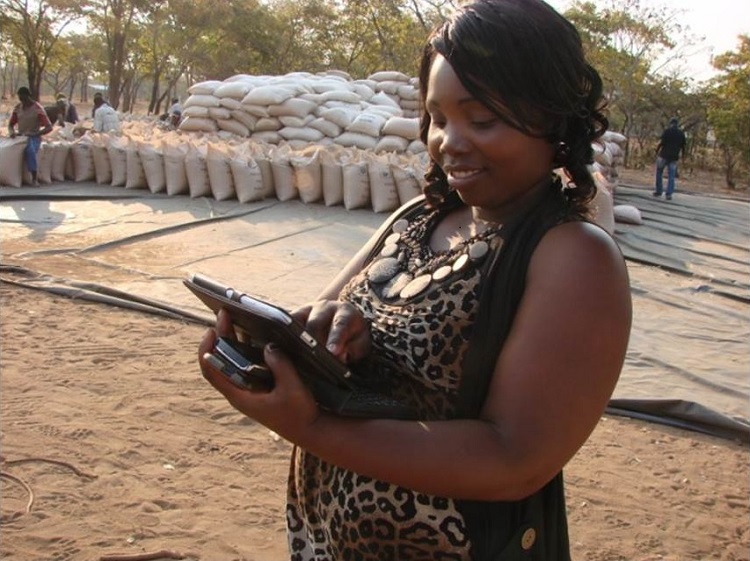
A report launched today by the All-Party Parliamentary Group (APPG) on Agriculture and Food for Development advocates that Information Communication Technologies (ICTs) have the potential to be powerful tools in agriculture.
This sentiment was emphasised by NRI's Bruno Tran during his presentation to the APPG in July, as part of a series of seminars on ICTs in agriculture for development ('Ag4Dev') which led to today's report entitled Harnessing the potential: ICTs and Knowledge Sharing in Agriculture. The seminar topic was discussed by a diverse assembly including parliamentarians, ICT specialists, and Ag4Dev experts from a range of institutions including the UK's Department for International Development, NGOs working with innovative technology for global development efforts, NRI and other research organisations.
Bruno Tran's presentation gave an introduction to the whole area of ICTs in Ag4Dev. He described a case study conducted by NRI with the UN World Food Programme (WFP) in Zambia where tablets were used to record real time information for the quantity and quality of maize sold by farmers to the national Food Reserve Agency, thus making data available via the cloud from 24 purchase points in real time. The case study demonstrated a number of valuable lessons including the importance of matching the right ICT tool to specific situations. He also drew on findings from the insightful and interactive 'ICT4Ag' conference which took place in Kigali, Rwanda in November 2013. His presentation elicited a number of interesting questions from the assembly, fuelling the conversation further.
Also presenting at the seminar was Jan Priebe, now working with NRI, who reported on his freelance work on ICTs in Ag4Dev with information based on an in-depth literature review, ICT best practices, and reports from his field work in Asia.
The APPG report and NRI's experts concur that ICTs alone cannot make a difference to the lives of smallholder farmers in the developing world – it is vital that these important tools deliver knowledge to communities via social innovations such as digitally empowered extension workers or tech-savvy community members, and that efforts are made to improve digital literacy among marginalised groups – for these tools to truly reach the people that will benefit most from their application.
Lord Cameron of Dillington, Chair of the APPG on Agriculture and Food for Development, concludes, “The real key to enhancing agriculture in the developing world is to have easy access to knowledge, training and market information. ICT is probably the best way to dispense this knowledge across the vast distances involved. But it requires considerable focus from both the public and private sector to ensure its potential for good is maximised. I hope this report will help achieve both that focus and the resultant good.”
Article on the APPG website | Full APPG report | Further information on the seminar series

